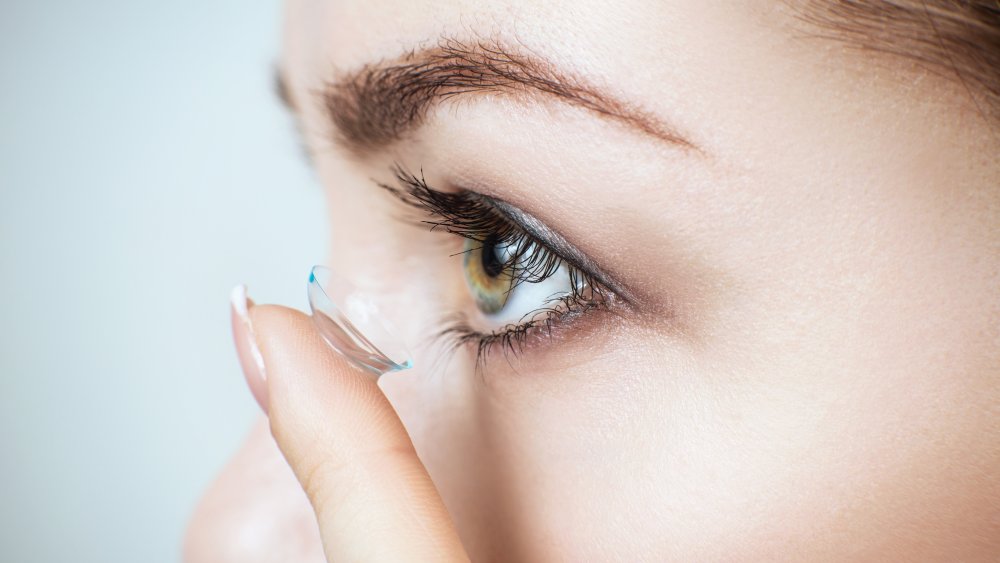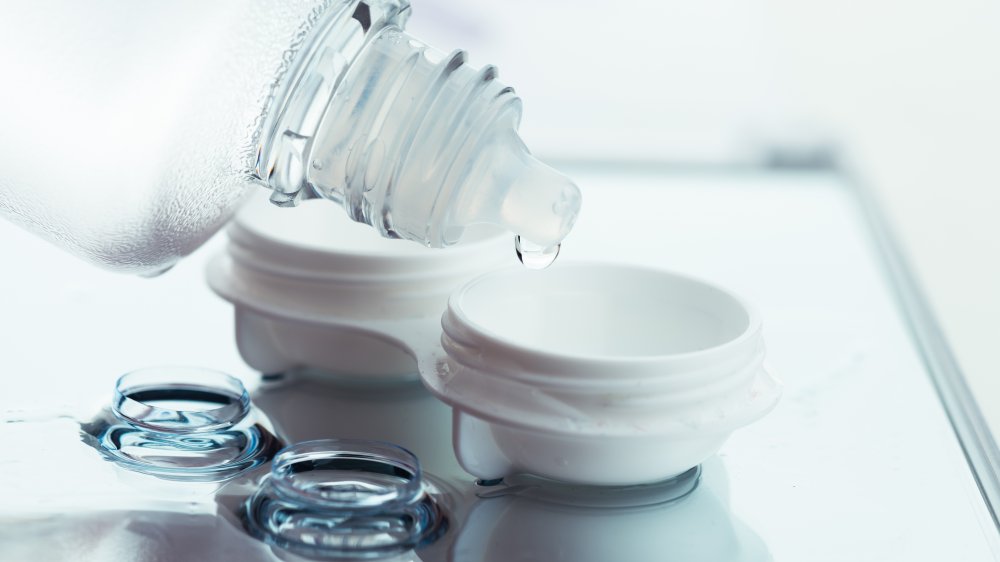Is Sleeping With Contacts In Really Safe?
You've already crawled into bed when you remember that you didn't take out your contacts. It can't make that much difference to sleep in them, can it? Just this once? According to science, though, it actually can make a big difference, even just one time — and it can be quite dangerous to your eye health.
That's because it's vital to your vision that the cornea — that clear bubble that covers the colored part of your eye — be supplied with oxygen, according to SELF. Contacts are made to be oxygen permeable, and to sit on top of moisture rather than touching the cornea itself. When you close your eyes at night it already limits the oxygen supply to the cornea. Adding the lens on top of that further restricts airflow.
And when the cornea dries out it can swell, developing microscopic cracks. This allows for pathogens that cause infection to enter and do damage. At the least, you might develop a mild infection causing redness and discomfort. At the worst, the cornea can develop an ulcer which can lead to permanent vision loss.
What about extended wear contacts?
There are contacts available that are marketed as extended-wear options that allow you to keep them in at night. Unfortunately, though, they too come with limitations. They're not safe for everyone, and should only be used for a few days at a time, according to SELF. Your eye doctor can best advise you on whether you are a good candidate for extended wear lenses.
Good contact hygiene isn't limited to not sleeping in your lenses. To best protect against infections, which can have serious consequences including the loss of an eye, you'll want to avoid a few habits. Don't reuse disposable contacts or go longer than recommended before replacing them, according to the Cleveland Clinic. Replace your contact case every three to four months. Don't top off the solution in the case when you put your contacts in it; instead, throw out the old solution and replace it all. Perhaps most importantly, wash your hands thoroughly before handling contacts or touching your eyes.
Though they seem like such a small thing, it's wise to remember that contacts are a medical device, and treat them with proper care.


